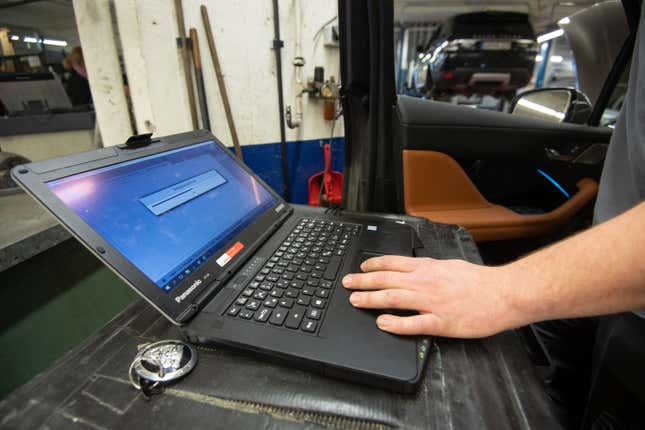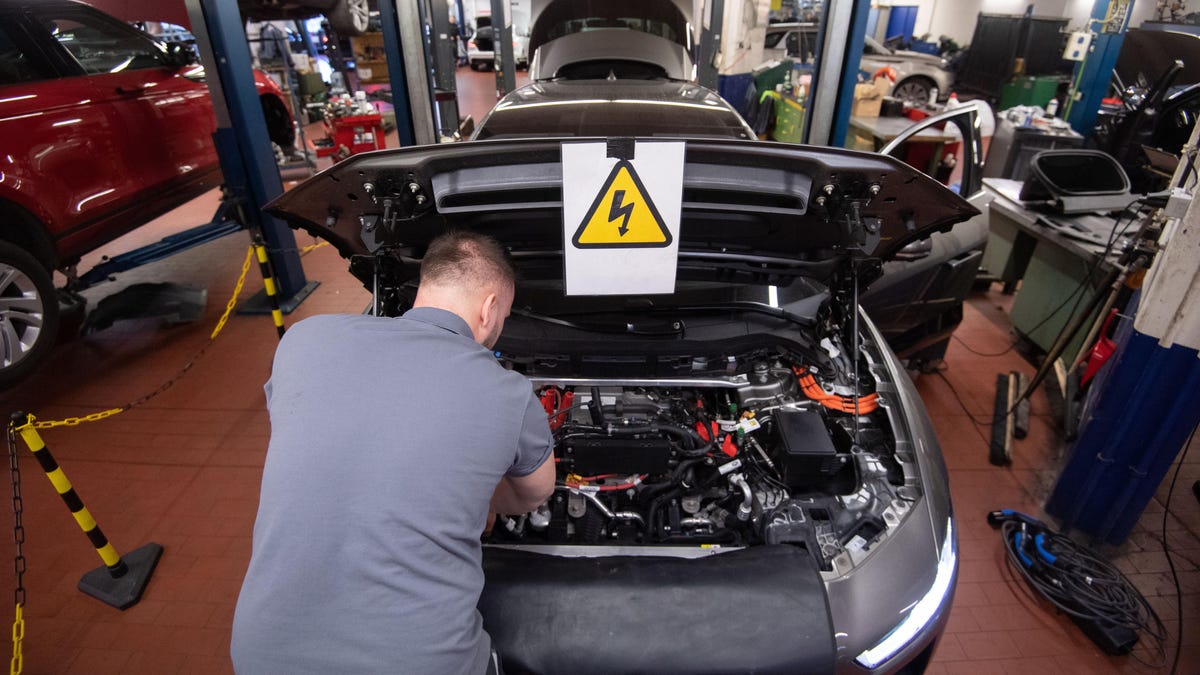California is proposing regulation mandating an industry standard diagnostic system for EVs. The standardized system is set to debut in 2026 in the Golden State but could usher in the creation of something like OBD-II for EVs, which is currently lacking. EVs have some diagnostic capability now, but they are not subject to an industry standard for OBD. They all work differently, making diagnostics across make and model difficult, according to Automotive News.
Combustion-powered cars had the same issue until the 1990s when the California Air Resources Board — and, later, the EPA — required all new cars to have OBD-II, which built upon earlier standards that hadn’t yet been fully adopted.
California is updating the standards for EVs via the Advanced Clean Cars II program because proprietary diagnostic systems have led to a “wild, wild West” situation when testing defective vehicles, retrieving fault codes and relaying vital information, which technicians need to fix a breakdown. Per Auto News:
…While EVs do have some diagnostic capabilities, they all work differently.
Now, starting with 2026 model vehicles, all that changes. California regulations, part of the state’s Advanced Clean Cars II program, require automakers to phase in a standard EV diagnostic system similar to the onboard diagnostic system II found in combustion engine vehicles.
California could become the industry standard for EV diagnostics. Seven of the 17 states that follow its emissions rules have already adopted Advanced Clean Cars II regulations. Onboard diagnostic regulations for EVs will govern plug-in hybrid and fuel cell vehicles as well.
The upcoming CARB regulations say the new standard covers everything in an EV’s propulsion system, including the battery pack, power electronics, charging system and thermal systems. All of these systems will be accessible to dealers and independent shops.
It’s still unclear if the 16-pin connector will carry over from OBD-II, but given it’s age, it may be time to phase it out. But having a standardized OBD system for EVs entails more than a universal port, as it requires common hardware and underlying systems that scan and report faults.
The CARB rules also require automakers to show battery data within a menu that drivers can easily access. In other words, owners won’t need a fancy scan tool to look up the health of their EV’s battery, which is a common concern. These rules could make owning an EV easier and less daunting for owners. And they will certainly make servicing EVs easier in general.


